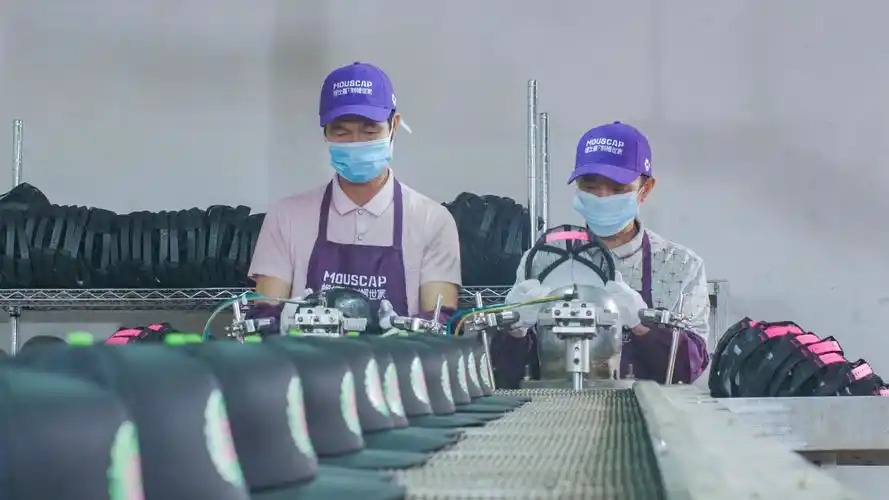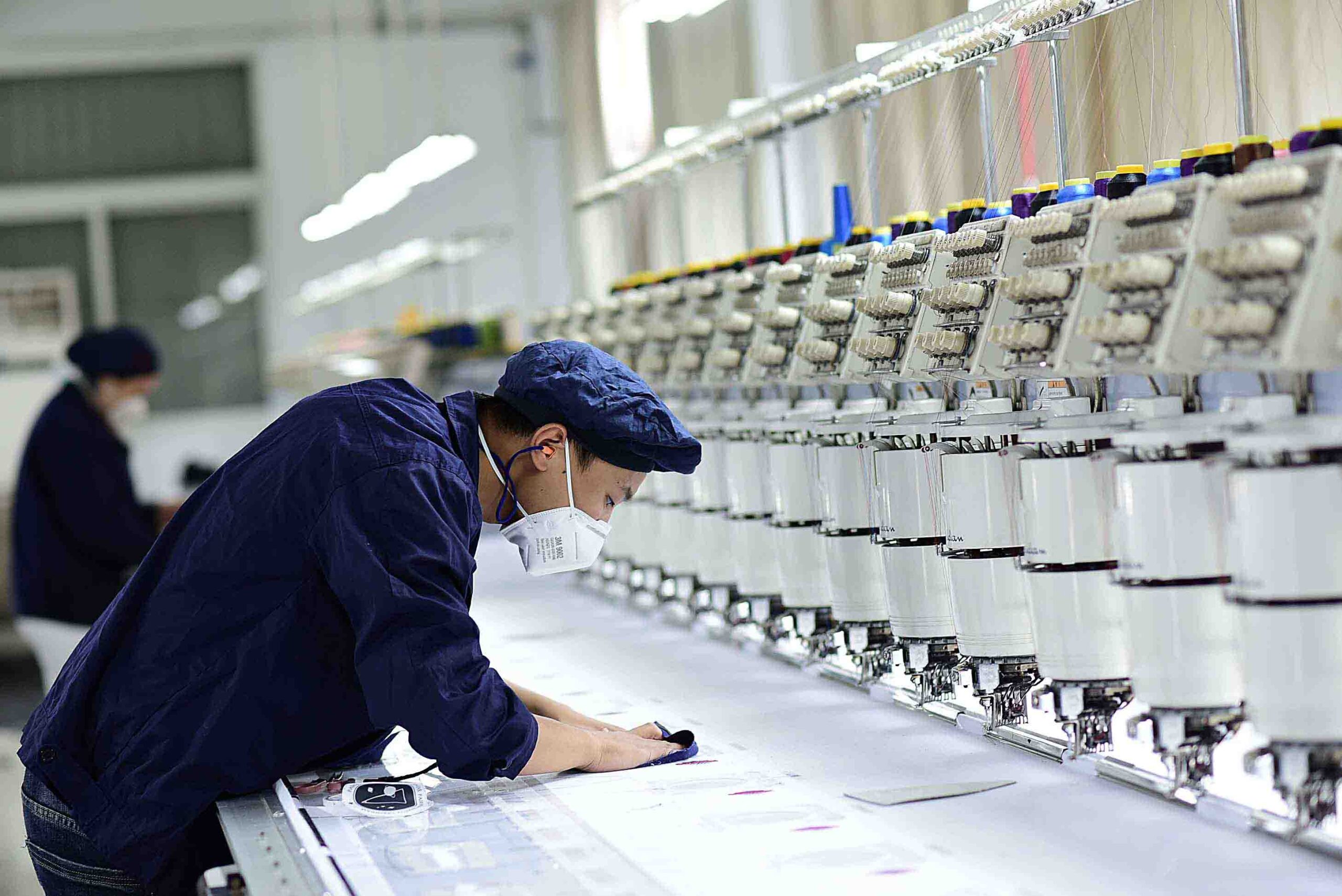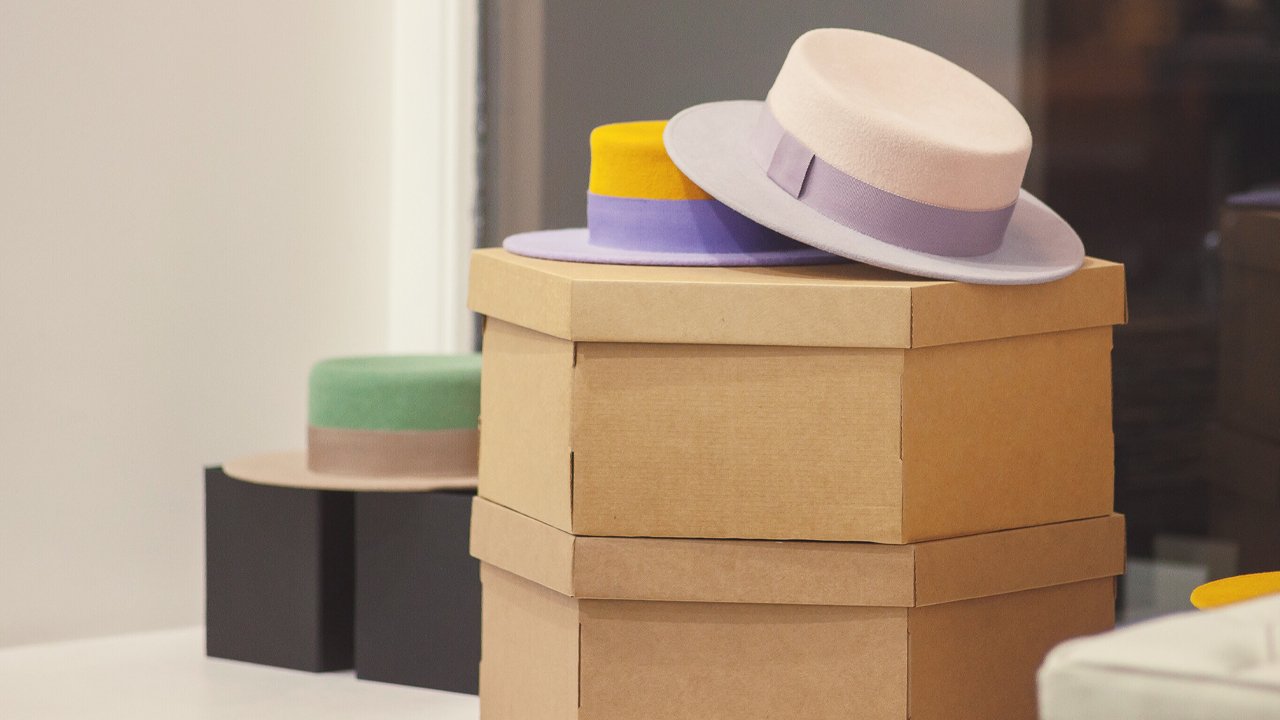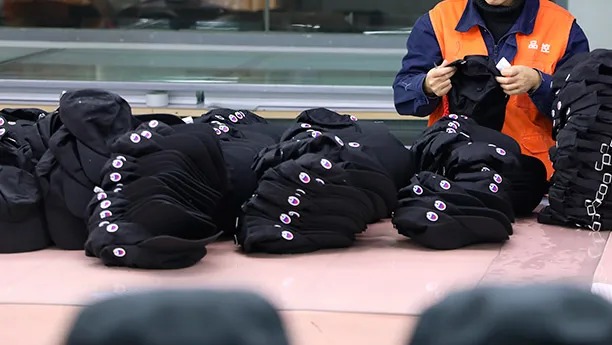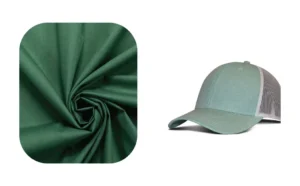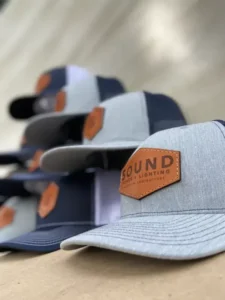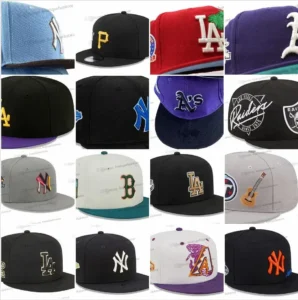Introduction
Launching a fashion brand is tough—high production costs and complex supply chains can stifle creativity before it even begins. For startups, finding a way to craft unique, brand-aligned headwear without breaking the bank is a **”no-brainer”**.
That’s where private label hat manufacturing shines. By partnering with experienced OEM manufacturers like KINWIN, new brands gain design flexibility, full branding control, and fast lead times. This guide breaks down the process and benefits, empowering entrepreneurs to build a standout hat line efficiently.
Introduction to Private Label Hat Manufacturing
Private label hat manufacturing lets fashion startups create their own branded headwear without building factories. It’s a “game-changer” for new brands because it cuts costs and speeds up market entry. By partnering with custom hat manufacturers, entrepreneurs can focus on design and marketing while experts handle production.
What Are Private Label Hats? Definition and Key Features
Private label hats are custom-designed headwear sold under a brand’s name but made by a third-party manufacturer. These hats often include unique logos, materials, or styles tailored to the brand’s vision. Key features include flexibility in design, low minimum order quantities, and the ability to scale production as the brand grows.
Manufacturers like Hat Factory China offer startups the chance to create private label hats with full customization. This means brands can choose fabrics, colors, and embroidery to match their aesthetic. It’s perfect for starting a private label hat line without heavy investment.
Benefits of Private Label Manufacturing for New Brands
Private label hat manufacturing saves time and money for new brands. Instead of buying expensive equipment, startups can rely on established custom hat manufacturers to produce high-quality hats. This approach also reduces risks since manufacturers handle quality control and logistics.
Another benefit is speed. With private label manufacturing, brands can launch collections in weeks, not months. Plus, manufacturers often provide global shipping, making it easier to reach customers worldwide.
Private label hat manufacturing helps startups launch branded headwear quickly and affordably, letting them focus on building their brand instead of managing production.
How OEM/ODM Models Support Fashion Startups
OEM (Original Equipment Manufacturing) and ODM (Original Design Manufacturing) models are key to private label hat manufacturing. OEM allows brands to provide their own designs for manufacturers to produce, ensuring total creative control. ODM, on the other hand, lets manufacturers offer pre-designed hats that brands can tweak and brand as their own.
Both models are great for startups. OEM suits brands with unique visions, while ODM is ideal for those wanting faster launches with less design effort. Companies like KINWIN provide both options, giving startups flexibility to grow.
Industry Trends in Custom Headwear for 2025
In 2025, custom headwear is leaning toward sustainability and bold designs. Eco-friendly materials like recycled polyester are in demand as consumers prioritize green products. Bright colors, oversized logos, and retro styles are also trending, especially among younger audiences.
Technology is shaping the industry too. Advanced embroidery and 3D printing allow for more detailed designs, while manufacturers offer online tools to preview custom hats. Staying ahead of these trends helps startups create private label hats that stand out.
Private Label Hat Manufacturing Comparison
| Feature | In-House Production | Private Label (OEM) | Private Label (ODM) | Industry Benchmark |
|---|---|---|---|---|
| Startup Cost | $50,000+ | $5,000 | $3,000 | $4,000 |
| Production Time (weeks) | 12 | 4 | 2 | 3 |
| Design Control | Full | Full | Partial | Full |
| MOQ (Minimum Order Quantity) | 1,000 | 100 | 50 | 75 |
| Sustainability Options | Limited | Available | Available | Common |
Note: Startup costs are based on industry averages for small-scale production. Production time varies by design complexity. Sustainability options include recycled materials and eco-friendly dyes.
The Private Label Hat Manufacturing Process
Private label hat manufacturing turns a brand’s vision into reality through a clear, efficient process. It’s a streamlined way for startups to create custom headwear solutions without managing factories. Let’s break down the steps to show how to manufacture private label hats.
Step 1: Concept Development and Design Customization
Every hat starts with an idea. Brands work with manufacturers to sketch designs, choose styles, and add unique features like logos or embroidery. This step ensures the hat reflects the brand’s identity, with tools like 3D mockups helping visualize the final product.
Manufacturers like Hat Factory China provide design support, offering templates and customization options. Startups can tweak colors, shapes, or patterns to stand out. Clear communication here sets the stage for a successful hat manufacturing process.
Step 2: Material Sourcing and Quality Selection
Next, manufacturers source materials based on the brand’s needs. Options include cotton, polyester, wool, or eco-friendly fabrics like recycled materials. Quality selection is key to ensuring durability and comfort, aligning with customer expectations.
Top manufacturers follow strict standards, like ISO 9001 compliance, to guarantee material quality. For example, KINWIN prioritizes sustainable fabrics that appeal to eco-conscious buyers. This step balances cost, quality, and brand values.
The hat manufacturing process combines creative design with high-quality materials to produce custom headwear solutions that meet market demands.
Step 3: Production Techniques and OEM Expertise
Once designs and materials are set, production begins. OEM (Original Equipment Manufacturing) expertise allows manufacturers to produce hats to exact specifications. Techniques like automated stitching, embroidery, or 3D printing ensure precision and consistency.
Companies like Hat Factory China use advanced machinery to maintain fast lead times, often delivering in weeks. Their ISO 9001-compliant facilities reduce errors, ensuring every hat meets quality benchmarks. This step is where private label hat manufacturing shines, blending technology with craftsmanship.
Step 4: Packaging and Branding Integration
The final step is packaging and branding. Hats are labeled with custom tags, packed in branded boxes, or paired with marketing inserts to enhance the unboxing experience. This step reinforces the brand’s identity and prepares hats for retail.
Manufacturers also handle logistics, offering global shipping to meet tight deadlines. KINWIN, for instance, provides customizable packaging options that elevate brand perception. Proper packaging ensures hats arrive marketready.
Hat Manufacturing Process Metrics
| Process Step | Time (Days) | Cost Range ($/Unit) | Quality Check | Industry Standard |
|---|---|---|---|---|
| Concept Design | 5-7 | 0.50-1.00 | Visual Review | 6 Days |
| Material Sourcing | 3-5 | 1.00-2.50 | Fabric Testing | 4 Days |
| Production | 7-10 | 2.00-5.00 | Stitch Inspection | 8 Days |
| Packaging | 2-4 | 0.50-1.50 | Label Check | 3 Days |
| Shipping Prep | 1-3 | 0.30-0.80 | Final Audit | 2 Days |
Note: Time and cost vary by order size and complexity. Quality checks involve industry-standard tests like fabric strength and colorfastness. Data reflects averages from ISO 9001-compliant manufacturers.
Customization Options for Brand Identity
Customizing hats lets brands craft unique products that scream their vibe. From materials to logos, private label hat manufacturing offers endless ways to stand out. Let’s dive into how startups can use these options to nail brand-specific hat production.
Material Choices: Cotton, Polyester, Wool, and Blends
Materials set the tone for a hat’s look and feel. Cotton is soft and breathable, perfect for casual caps, while polyester is durable and great for vibrant prints. Wool adds warmth for winter beanies, and blends combine the best of each for versatility.
Custom hat manufacturers like KINWIN offer eco-friendly options, like recycled polyester, to appeal to green-minded buyers. Choosing the right material aligns the hat with the brand’s values and audience. It’s a key step in creating a product that pops.
Design Elements: Embroidery, Logos, and Color Variations
Design elements make hats instantly recognizable. Embroidery adds a premium touch with logos or patterns, while bold color variations grab attention. Brands can mix and match shades to reflect their aesthetic, from muted tones to neon “show-stoppers”.
Hat Factory China’s advanced tech, like 3D embroidery, ensures precise logo placement. Startups can preview designs online, making it easy to perfect their look. These details turn a plain hat into a brand statement.
Brand-specific hat production lets startups create unique headwear with custom materials, logos, and packaging that resonate with their target audience.
Hat Styles: Baseball Caps, Beanies, Bucket Hats, and More
Hat styles define a brand’s personality. Baseball caps are timeless and sporty, beanies suit cozy urban vibes, and bucket hats scream retro cool. Custom hat manufacturers offer dozens of styles, letting brands pick what fits their niche.
Companies like KINWIN provide style guides to help startups choose. They also support low minimum orders, so brands can test multiple styles without overcommitting. This flexibility is a big win for new businesses.
Packaging Customization for Brand Cohesion
Packaging ties the brand experience together. Custom tags, boxes, or tissue paper with logos make unboxing memorable. It’s a chance to reinforce brand identity before the hat even hits the shelf.
Hat Factory China offers tailored packaging solutions, from minimalist to luxe, with fast turnaround. Thoughtful packaging boosts perceived value and keeps customers coming back. It’s the final touch that seals the deal.
Customization Options Comparison
| Feature | Basic Customization | Advanced Customization | Premium Customization | Industry Standard |
|---|---|---|---|---|
| Material Options | 2 (Cotton, Polyester) | 4 (Includes Wool, Blends) | 6 (Includes Eco-Friendly) | 4 |
| Design Features | Logo Print | Embroidery, Colors | 3D Embroidery, Patches | Embroidery |
| Style Variety | 1 (Baseball Cap) | 3 (Includes Beanie) | 5 (Includes Bucket Hat) | 3 |
| Packaging Options | Generic | Custom Tags | Branded Boxes, Inserts | Custom Tags |
| Cost ($/Unit) | 3.00 | 5.00 | 8.00 | 6.00 |
Note: Costs are averages for small orders (100 units). Premium options include advanced techniques like 3D printing. Data aligns with 2025 industry trends from ISO-compliant manufacturers.
Choosing the Right Private Label Manufacturer
Finding the best private label hat manufacturers can make or break a startup’s success. It’s about partnering with OEM hat manufacturers who deliver quality, speed, and flexibility. Here’s how to pick the right one for your custom headwear solutions.
Key Criteria: Experience, Production Capacity, and Quality Assurance
Experience matters in private label hat manufacturing. Look for manufacturers with at least 10 years in the industry, as they’ve likely mastered production challenges. Production capacity should match your needs—can they handle 100 hats or 10,000? Quality assurance, like ISO 9001 certification, ensures consistent standards.
Hat Factory China, for example, boasts decades of experience and rigorous quality checks. Their global export capabilities make them a “go-to” for startups. Always verify certifications and ask for client references to confirm reliability.
Importance of Fast Lead Times in ODM/OEM Production
Speed is critical in fashion. Fast lead times—ideally 2-4 weeks—help brands hit market trends on time. OEM hat manufacturers like KINWIN prioritize quick turnarounds without cutting corners, keeping startups competitive.
Check if the manufacturer uses automated systems or has multiple facilities to avoid delays. Hat Factory China’s streamlined processes ensure hats reach global markets swiftly. Slow production can kill momentum, so prioritize speed.
Choosing a private label hat manufacturer with experience, fast lead times, and strong quality assurance sets startups up for scalable success.
Evaluating Customization and Scalability Options
Customization lets brands stand out. Can the manufacturer offer unique embroidery, eco-friendly fabrics, or bold color options? Scalability is just as important—can they grow with your brand, from small batches to large orders?
KINWIN excels in both, offering low minimum orders and advanced design tools. Their scalability supports startups as demand spikes. Look for manufacturers who balance creativity with production flexibility.
Questions to Ask Potential Manufacturers
Asking the right questions saves headaches later. Inquire about minimum order quantities, production timelines, and material sourcing. Do they offer samples? What’s their defect rate? Are sustainable options available?
Hat Factory China provides transparent answers, with detailed specs on their site. Clear communication builds trust and ensures your vision aligns with their capabilities. Don’t skip this step—it’s your safety net.
Manufacturer Selection Criteria Comparison
| Criteria | Basic Manufacturer | Mid-Tier Manufacturer | Premium Manufacturer | Industry Standard |
|---|---|---|---|---|
| Experience (Years) | 2 | 5 | 10+ | 8 |
| Lead Time (Weeks) | 6 | 4 | 2 | 3 |
| MOQ (Units) | 500 | 200 | 50 | 100 |
| Quality Certification | None | Partial | ISO 9001 | ISO 9001 |
| Customization Options | Basic | Moderate | Advanced | Moderate |
Note: Data reflects 2025 industry averages. Lead times assume standard orders (100-500 units). Customization includes embroidery, fabric variety, and packaging. ISO 9001 ensures defect rates below 2%.
Budgeting and Scaling Your Hat Line
Launching private label hats is exciting, but smart budgeting and scaling are key to long-term success. Startups need to manage costs while keeping quality high to compete. Here’s how to balance affordability and growth in the hat manufacturing process.
Understanding Cost Structures in Private Label Manufacturing
Costs in private label hat manufacturing include materials, labor, and customization. Materials like cotton or polyester range from $1-$3 per unit, while embroidery adds $0.50-$2. Other expenses, like packaging and shipping, can vary based on order size.
Manufacturers like Hat Factory China offer transparent pricing, with FAQs detailing costs. Knowing these breakdowns helps startups plan budgets without surprises. Always request a detailed quote before committing.
Balancing Quality and Affordability for Small Orders
Small orders are a “big deal” for startups testing the market. Opt for simpler designs, like printed logos instead of 3D embroidery, to keep costs low. Choosing versatile materials like cotton blends ensures quality without breaking the bank.
KINWIN supports small batches with low minimum order quantities (MOQs), starting at 50 units. This lets brands maintain quality while staying affordable. Focus on core designs to maximize impact on a tight budget.
Smart budgeting in the hat manufacturing process lets startups create high-quality private label hats affordably, setting the stage for scalable growth.
Strategies for Scaling Production as Demand Grows
As demand rises, scaling production is critical. Partner with manufacturers who can handle larger orders without delays—think 500+ units per run. Flexible production lines, like those at Hat Factory China, ensure smooth transitions from small to large batches.
Plan inventory based on sales trends to avoid overstocking. Reinvest profits into bolder designs or eco-friendly materials to attract more customers. Scaling smart keeps costs manageable while boosting brand reach.
Tips for Optimizing Budgets with Flexible Pricing
Flexible pricing models save money. Negotiate bulk discounts for larger orders or choose ODM designs to cut design costs. Manufacturers like KINWIN offer tiered pricing, so costs drop as order sizes grow.
Another tip is to bundle services, like combining packaging and shipping for lower rates. Regularly review quotes from multiple manufacturers to stay competitive. These steps stretch budgets further without sacrificing quality.
Cost and Scaling Metrics
| Factor | Small Order (50 Units) | Medium Order (200 Units) | Large Order (500 Units) | Industry Average |
|---|---|---|---|---|
| Cost per Unit ($) | 8.00 | 6.50 | 5.00 | 6.00 |
| Production Time (Days) | 14 | 10 | 7 | 10 |
| MOQ (Units) | 50 | 100 | 200 | 100 |
| Customization Cost ($) | 1.50 | 1.00 | 0.80 | 1.00 |
| Defect Rate (%) | 3 | 2 | 1 | 2 |
Note: Costs assume standard designs (e.g., cotton caps with embroidery). Production times vary by complexity. Defect rates reflect ISO 9001-compliant manufacturers’ data from 2025 trends.
Conclusion
After years in the hat industry, I’ve seen how private label manufacturing can turn a startup’s vision into reality. It’s not just about creating hats—it’s about building a brand that resonates with your audience through quality and style.
Partnering with a manufacturer like KINWIN gives you the tools to craft unique headwear without the stress of managing production. From eco-friendly materials to custom logos, you can shape every detail to fit your vibe. Choosing the right partner ensures your hats hit the market fast and flawless.
Starting a hat line is a bold move, and the right manufacturer makes it a **”slam-dunk”**. So, what’s your next step? Dive into your brand’s story and let your hats do the talking.
FAQ
-
Q1: What is private label hat manufacturing?
A1: Private label hat manufacturing refers to the process where a manufacturer produces hats that are sold under another company’s brand name. This approach allows brands to offer customized headwear products without managing the production process themselves.
-
Q2: How does custom hat manufacturing work?
A2: Custom hat manufacturing involves creating hats tailored to specific design specifications provided by a client, including unique styles, materials, and branding features. Manufacturers often offer sampling and prototyping before full-scale production.
-
Q3: What are OEM hat manufacturers?
A3: OEM hat manufacturers produce hats based on the designs and specifications provided by another company, which then sells them under its brand name. OEM stands for ‘Original Equipment Manufacturer’.
-
Q4: What factors should be considered when choosing a private label hat manufacturer?
A4: Key factors include the manufacturer’s expertise, quality of materials, design flexibility, production capacity, lead time, and previous customer reviews. Brands should also consider cost-effectiveness and the ability to meet specific customization requirements.
-
Q5: How can I ensure quality in private label hat production?
A5: To ensure quality, select manufacturers with a strong track record, request samples before mass production, specify quality requirements in contracts, and possibly conduct on-site inspections during production.
-
Q6: What are the benefits of using private label hats for branding?
A6: Private label hats offer branding control, allowing companies to design products that align with their brand image. These hats can enhance brand recognition and customer loyalty through personalized designs and logos.
-
Q7: What is the typical production timeline for custom private label hats?
A7: Production timelines vary, but it generally takes 4-8 weeks from design finalization to delivery, depending on the complexity of the design and manufacturer capacity.
-
Q8: Are there eco-friendly options available in private label hat manufacturing?
A8: Many manufacturers now offer eco-friendly options using organic and recycled materials. Brands interested in sustainability should inquire about available materials and production practices with their chosen manufacturers.
External Links
- Private Label Hat Manufacturers | Cap Manufacturer & Factory
- Premium Custom Hat Manufacturer for Retail Brands | Seam Apparel
- Custom Hat Manufacturer (Trucker Hats, Baseball Cap, etc … – Appareify
- Private Label Hats | Custom Hat Manufacturer for Your Brand
- The Top 9 Custom Hat Manufacturers – Hongyu Apparel
- Top 17 Private Label Hat Manufacturers 2024: Secure the Best for Your Brand
- Custom Hat Manufacturing Company
- Private Label Custom Hat Company, Snapbacks & Headwear Manufacturer

